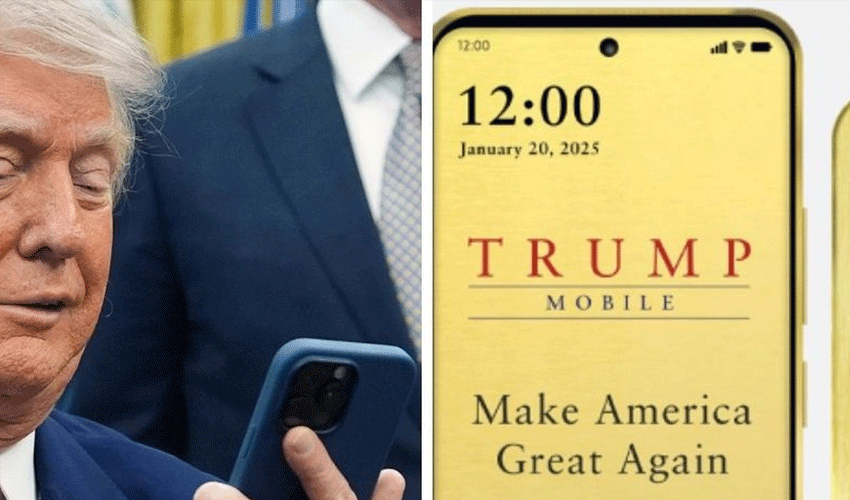On Tuesday, the Trump Organization officially introduced its new mobile phone service, “Trump Mobile,” featuring a $499 smartphone and promising U.S.-based call centers and domestically manufactured handsets. This move marks a notable expansion of President Donald Trump’s business interests into the highly regulated U.S. telecommunications sector.
Analysts view this launch as part of a broader strategy to appeal to conservative consumers and supporters of the former president by offering alternatives to mainstream platforms. In recent years, the Trump family’s business ventures have increasingly diversified into areas such as digital media, cryptocurrency, and branded products like Truth Social.
The Trump Organization, which oversees the former president’s business holdings, stated that the wireless service would operate independently with U.S.-based customer support. However, it did not immediately disclose which mobile network operator (MNO) is providing the underlying infrastructure. Industry experts, including those from Barclays, have raised concerns about this lack of transparency regarding mobile virtual network operator (MVNO) agreements with major telecom carriers, noting it’s “quite unprecedented for a sitting president’s name to be attached to a regulated commercial service.”
The absence of clarity regarding the network provider has raised questions about regulatory oversight and competitive balance. The current Federal Communications Commission (FCC) chair, Brendan Carr, is politically aligned with the Trump administration and co-authored “Project 2025,” a document outlining prospective second-term policy objectives. Observers suggest this alignment could influence regulatory dynamics surrounding the venture.
The Barclays research note further indicated that this situation could place telecom firms like Verizon and AT&T in a “challenging position,” especially given their ongoing merger and licensing reviews. Analysts also cautioned that existing agreements containing “most favored nation” clauses could face disruption if Trump Mobile receives preferential terms.
Lawrence Lessig, a constitutional law professor at Harvard University, criticized the development, stating that it further exemplifies how President Trump views the presidency as a vehicle to expand his family’s wealth. Paolo Pescatore, a London-based telecom analyst, echoed concerns about the lack of clarity regarding commercial relationships and regulatory compliance.
From a business standpoint, the venture enters a saturated market. David Wagner, head of equities at Aptus Capital Advisors in Ohio, suggested its appeal might be limited due to political polarization, noting the industry’s “stickiness” to current providers. Conversely, Brian Mulberry of Zacks Investment Management saw a potential market for the mid-range pricing of the Trump Mobile smartphone, suggesting it could create competition for premium offerings from Apple and Samsung.
Despite mixed industry reactions, the Trump Organization has not yet provided detailed specifications for the phone’s features, operating system, or compatibility with major app platforms. Nor has it outlined how the offering would comply with telecommunications regulations. This launch comes amid heightened scrutiny of Trump’s business dealings, particularly following his legal and political challenges. Critics continue to argue about the ethical implications of the overlap between political office and personal profit, despite the company’s assertion that control lies with Trump’s children. Recent reports also indicate skepticism about the “Made in America” claim for the T1 phone, with suggestions that manufacturing may occur in China, and some preorder systems faced technical issues. The “47 Plan” for the mobile service is priced at $47.45 per month and is set to begin shipping in September.



